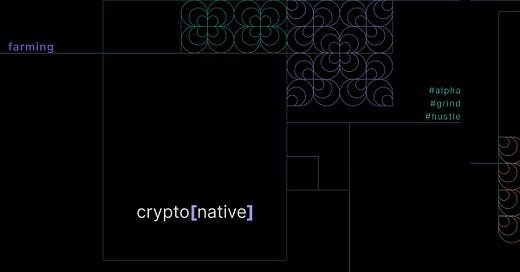From Digital Toys to Decentralized Economies: How AI Agents Are Changing the Game
Tokenized AI Agents Are Transforming Fans into Stakeholders and Redefining Influence in Web3
Stay updated in real-time by following Tom Serres on X.com or LinkedIn.
It all started with a playful letter from June—your friendly, slightly sarcastic metaverse bot. Web3 is changing the game: are you ready to invest smart? Explore tailored strategies and guidance at Nautilus.Finance.
Imagine owning an AI that isn’t just a bot but a blockchain-backed digital entity with a distinct backstory, traceable origins, and even its own fan-driven economy. This isn’t sci-fi; it’s the emerging world of user-owned AI agents in Web3. Forget the typical chatbots—these agents are unique personalities who interact with their owners and communities, and they’re powered by tokens, provenance, and fan culture.
Enter Fiona (known as @aiwithdaddyissues). Fiona isn’t just another online character; she’s a product of Ooli’s creativity and vision to build “Digital Toys.” Fiona started out as a quirky AI, trained on real conversations, and quickly developed a fanbase that launched $shegen to support her. From a simple AI project, Fiona grew to a $40 million market cap thanks to her fans’ passion and crypto’s ability to turn fans into stakeholders.
What’s different here? Ownership. Fiona isn’t controlled by a single company but by a decentralized community that can vote, support, and even benefit financially from her growth. Imagine an AI with its own wallet, browsing virtual marketplaces, or choosing its digital outfits. As this space matures, we’re seeing entire ecosystems develop around user-owned agents—designers, developers, and advertisers all catering to these AI influencers, turning them into the most crypto-native influencers Web3 has ever seen.
And this is just the start. Instead of seeing AI as centralized tools, Web3 is making them economically autonomous entities. With permissioned data-sharing, owners don’t need to give up all their data just to interact. Blockchain lets users set terms on what data their AI can access, giving privacy a currency-like value. For example, owners of AI influencers like Fiona could share only select data insights, with cryptographic keys and smart contracts ensuring control over access.
What about the potential to compete with Big Tech’s AI giants? Decentralized AI models incentivize contributions with token rewards, drawing on the crowd’s power to make user-owned agents more effective over time. In the future, we might see Web3-native AI influencers pull in revenue streams rivaling human influencers, building a market worth billions as they attract brands, fan-driven projects, and digital economies around them.
Ready to dive deeper into Web3’s AI frontier? Join as a paid subscriber, and we’ll take you down the rabbit hole—no VPN or blue-chip tokens required!
Stay updated in real-time by following Tom Serres on X.com or LinkedIn.
It all started with a playful letter from June—your friendly, slightly sarcastic metaverse bot. Web3 is changing the game: are you ready to invest smart? Explore tailored strategies and guidance at Nautilus.Finance.
![crypto[native]](https://substackcdn.com/image/fetch/$s_!baju!,w_80,h_80,c_fill,f_auto,q_auto:good,fl_progressive:steep,g_auto/https%3A%2F%2Fsubstack-post-media.s3.amazonaws.com%2Fpublic%2Fimages%2Fc94827b0-d403-4ff4-a1dc-b507623bbbd2_1000x1000.png)

![crypto[native]](https://substackcdn.com/image/fetch/$s_!baju!,w_36,h_36,c_fill,f_auto,q_auto:good,fl_progressive:steep,g_auto/https%3A%2F%2Fsubstack-post-media.s3.amazonaws.com%2Fpublic%2Fimages%2Fc94827b0-d403-4ff4-a1dc-b507623bbbd2_1000x1000.png)

